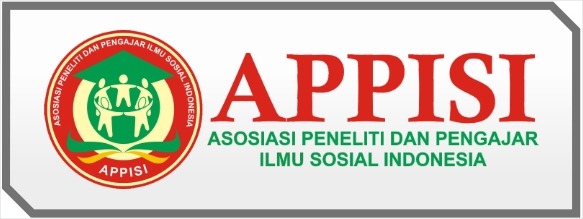THE EFFECT OF FRIENDSHIP CIRCLE ON RELIGIOSITY IN STUDENTS
DOI:
https://doi.org/10.61994/jpss.v1i2.81Keywords:
friendship circles, religious belief, religiosity, social behavior, teenager, attitude, interactionAbstract
The purpose of this study was to determine the effect of friendship circles on religiosity in 2nd and 4th semester students at the Faculty of Psychology, State Islamic University Raden Fatah Palembang. the research method used in this research is quantitative using comparative causal techniques. The subjects of this study were 2nd and 4th semester students at the Faculty of Psychology, State Islamic University Raden Fatah Palembang. The sample of this study were 33 students who were taken using a questionnaire. The instrument used is the friendship circle scale and the religiosity scale. The results of the hypothesis test (product moment) show a very high level of relationship, there is a real (significant) influence of variable X (friendship) on variable Y (religiosity). From the output it can be seen that F count = 9,722 with a significance level or probability of 0.004 <0.05, the regression model can be used to predict the religiosity variable.
References
References
Agustin, Nisrina Nurika (2019). "The dynamics of religiosity in the behavior of fwb (friends with benefits): a case study in an Islamic campus". psychology major, FIP, Surabaya State University
Burke, CJ, & Dutta, K. (2019). Effects of Social Influence on Religiousness: Evidence from the American Freshman Survey. Social Science Quarterly, 100(1), pp. 285-310
Hill, WG (2001). Religion in a Social Context: Effects of Close Friendship on Religious Commitment. Journal for the Scientific Study of Religion, 40(3), 439-448
Jans, L., & Koole, S.L. (2018). Religion in close relationships: An exploration of implicit religiousness, perceived partner responsiveness, and marital satisfaction. Psychology of Religion and Spirituality, 10(4), 351–360. https://doi.org/10.1037/rel0000196
Kraut, R. (1973). Social ties and religious behavior. Social Forces, 52(2), 201–218. doi:10.1093/sf/52.2.201
Mahmudah, AA (2017) Analysis of the influence of religiosity on the consumptive behavior of students at the Al-hikmah Tugurejo Islamic Boarding School, Semarang. Thesis. UIN Walisongo.
Putnam, RD (2007). Erosion of Social Capital in America. Annals of the American Academy of Political and Social Science, 610(1), pp. 19-34.
Smith, C. (2009). Encyclopedia of Religion and Society. Sage.
Soomro, GM, Arain, GA, & Khan, SN (2016). The impact of religiosity and spirituality on the quality of life of Muslims. Journal of Religion and Health, 55(4), 1215–1224.https://doi.org/10.1007/s10943-015-0114-4
Wardani, Desy Ayu., & Alfiani, Ramadhan Noor (2022). "The relationship between self-control and adolescent premarital sexual behavior". nursing study program, ITKES wijaya husada
Williams, CO & Hurlburt, BS (2019). Social Identity and Religiosity: Exploring the Interplay of Social Identity, Friendship Networks, and Religiosity. Journal of Applied Social Psychology, 49(2), 1-10.
Downloads
Published
Issue
Section
License
Copyright (c) 2023 Indah Septiani, Mustika Marlina, Afifha Ramandhini, Siti Hasmiah, Saputra Agung Suroji

This work is licensed under a Creative Commons Attribution-ShareAlike 4.0 International License.















